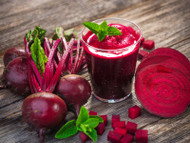You’re a busy working woman, and you probably know that your body needs different nutrients now you’re over 55. With menopause likely to have impacted your body, it’s important to manage the changes.
In this article, we look at some supplements that may help your overall health. It is important to get a detailed understanding of your specific health, diet and nutrition requirements from a qualified healthcare professional. Your GP and Pharmacists are educated about these issues and available to support you.
Let’s look at some popular supplements for busy, older women.
- Calcium for bone health
Calcium supplements are incredibly important for women going through menopause. Calcium supplements have been proven to improve[1] bone mineral density (BMD), especially in pre-menopausal women during the phase just before menopause truly gets into full swing.
Many calcium supplements include vitamin D, which is also extremely powerful at promoting bone growth. Talk to your doctor about which calcium supplement may be best for you.
- Chondroitin and Glucosamine for joints
Chondroitin is a popular supplement for those suffering from joint pain caused by osteoarthritis. One large review[2] of evidence showed chondroitin could decrease joint pain, and even create some structural improvement within the joints.
Often chondroitin and glucosamine are blended into one tablet for those suffering from joint pain as they both are said to decrease cartilage loss. But the question always is, do they work? Research doesn’t show long term improvements, but this could be because the supplements are relatively new.
However, both chondroitin and glucosamine have been shown to create improvements in pain and function by placebo too, which means they work even if they don’t change the structure of the bone. In other words? Chondroitin and glucosamine can help you move better, experience less joint pain, and complete your daily routine easier.
- Dietary Nitrate (beetroot juice) for blood pressure
Did you know most post-menopausal women have higher blood pressure than pre-menopausal women? If you’re struggling with high blood pressure, beetroot juice could be the answer. One study[3] found beetroot juice caused significant decreases in many blood pressure measures. Specifically: Brachial mean arterial pressure, central mean arterial pressure, and central systolic blood pressure. In other words? Add beetroot juice to your diet to help you manage increasing blood pressure.
Supplements are an amazing way to enhance your health, especially when you’re a busy working woman. When you’re in the prime of your life (over 55, of course!), there are a few things your body needs that are hard to get from diet alone. By catering to these needs with supplements, you can help enhance your health.
Remember, supplements are just an accessory to a great diet and regular exercise though. Supplements on their own won’t keep you healthy! Aim to get at least 30 minutes of exercise a day to help keep your heart, joints, and entire body moving and feeling well. Always let your doctor know which supplements you take as some can interact with medications.
Written by Caitlin R.
As a physiotherapist and personal trainer, Caitlin is passionate about health and fitness.
References
[1] Bailey R L, Zou P, Wallace T C, McCabe G P, Craig B A, Jun S, Cauley J A, Weaver C M. Calcium Supplement Use Is Associated With Less Bone Mineral Density Loss, But Does Not Lessen the Risk of Bone Fracture Across the Menopause Transition: Data From the Study of Women’s Health Across the Nation. 2019-10-18
[2] Liu X, Machado G C, Eyles J P, Ravi V, Hunter D J. Dietary supplements for treating osteoarthritis: a systematic review and meta-analysis. 2018
[3] Jin-Kwang Kim D, Barrett M A, Moore D J, Flanagan M P, Roe C, Kim-Shapiro D B, Proctor D N. Acute effects of dietary nitrate supplementation on peripheral and central blood pressure in post-menopausal women. 2016-05-01
All articles are provided as general information and are not intended, nor may it be construed, as medical advice or instruction. Information and opinions expressed are believed to be correct and accurate to the best knowledge and judgement of the authors. Readers should consult their appropriately qualified health care professional prior to taking any action or inaction.

